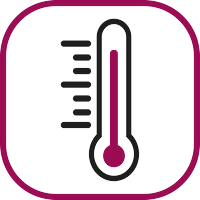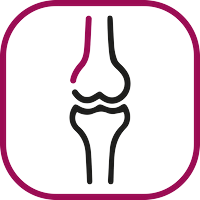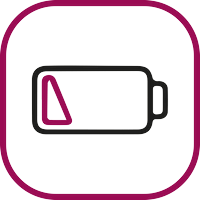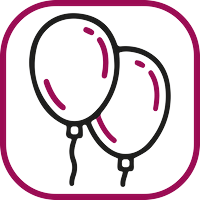

Symptoms
Menopause is a normal part of the ageing process that marks the end of women’s reproductive life. During this time, estrogen and progesterone levels gradually decline. As your ovaries produce less of these hormones, your body and brain undergo various changes. Menopause typically occurs in women during their 40s or 50s, although the transition leading up to menopause, known as perimenopause can begin much earlier.
In this section, we have compiled some of the more common symtoms associated with menopause so that you can empowered to take control and better manage these changes.
During perimenopause, hormonal changes affecting menstrual cycles can impact emotions. Fluctuations in estrogen levels during menopause can lead to mood swings and occasional forgetfulness, commonly known as “fuzzy-brain,” which can be frustrating and affect mood negatively.
Physical symptoms like hot flashes and fatigue further intensify these emotional changes. Additionally, the pressures of managing demanding careers, raising children of different ages, and caring for aging parents can amplify stress during your 40s and 50s, further impacting overall well-being.
It’s important to note the difference between mood swings and depression. If you feel your mood swings are causing you extreme stress or anxiety, or making it di cult to maintain a regular lifestyle, seek medical professional help.
As you reach menopause, you might notice some weight gain, which is often linked to age, lifestyle changes, and hormonal fluctuations. The decrease in estrogen levels during menopause tends to shift fat storage from the hips and thighs to the abdomen, as well as slow down your metabolism—the rate at which your body uses calories.
With age, muscle mass typically decreases while fat increases. This reduction in muscle mass further slows your metabolism, making it harder to maintain or lose weight. Additionally, most people become less active as they age, which can exacerbate the issue.
There’s no secret solution for the weight gain, but eating less and healthier, increasing physical activity and maintaining healthy hormonal balance are key to managing the situation.
Three out of four women in menopause suffer from flushing. It can happen during the day, but when it happens at night it will often interfere with your sleep and cause you to wake up drenched in sweat.
Decreased estrogen levels can affect the central thermoregulation zone in your brain, which regulates your body’s temperature. We all have a thermal neutral zone, which means our body temperature stays stable even when the temperature around us changes slightly. A change in your estrogen levels may narrow the thermal neutral zone such that small changes in outside temperature cause an uncontrolled rise in body heat.
You may become flushed, and your body may start to sweat to cool down. You may also experience accelerated heartbeats or chills following the heat wave.
Controlling the air temperature, keeping a cool drink by your side and maintaining healthy hormonal balance will assist you in dealing with this drenching experience.
As many as 61% of menopausal women report problems with their sleep. Changes in hormone levels have a great impact on your sleeping patterns. Hot flahes, especially night sweats, and changes in mood can contribute to poor sleep.
Some people have a difficult time falling asleep, while others have a hard time staying asleep. Lack of sleep causes fatigue during the day and affects your mood and your ability to cope with your daily chores.
Developing healthy habits at bedtime can help you get a good night’s sleep. For instance, follow a regular sleep schedule, keep your room cool and well-ventilated. Better manage the symptoms of menopause by supporting healthy hormonal balance.
Three out of four women in menopause suffer from flushing. It can happen during the day, but when it happens at night it will often interfere with your sleep and cause you to wake up drenched in sweat.
Decreased estrogen levels can affect the central thermoregulation zone in your brain, which regulates your body’s temperature. We all have a thermal neutral zone, which means our body temperature stays stable even when the temperature around us changes slightly. A change in your estrogen levels may narrow the thermal neutral zone such that small changes in outside temperature cause an uncontrolled rise in body heat.
You may become flushed, and your body may start to sweat to cool down. You may also experience accelerated heartbeats or chills following the heat wave.
Controlling the air temperature, keeping a cool drink by your side and maintaining healthy hormonal balance will assist you in dealing with this drenching experience.
Estrogen has many functions; it affects almost every part of our being. Among its many functions, estrogen helps to keep our joints flexible.
Joints that are most frequently affected during menopause are the neck, jaw, shoulders, wrists and elbows, though other joints in the body may experience stiffness as well. There are many ramifications of joint stiffness as other muscles compensate for lack of flexibility. Stiffening can cause pain, such as tight shoulder muscles, which can cause headaches.
It is important to learn to relax and treat your joints with physical activity, a healthy diet and balancing your hormonal system.
A persistent feeling of weakness, fatigue and lower energy levels are some of the most frequently experienced symptoms in the transition phase prior to or during menopause.
Up to 80% of women report these symptoms at one time or another. It is extremely frustrating as it affect both the mind and the body and can cause stress and anxiety.
Moreover, changes in hormone levels can affect your sleeping patterns, which, in turn, leads to fatigue.
Increasing your energy levels can be managed; you do not need to take it lying down. Exercising has been shown to increase energy levels, while maintaining healthy hormonal balance can improve quality of sleep, thereby reducing the feeling of fatigue.
There is a direct correlation between menopause, and bone health.
Estrogen helps keep your bones strong by supporting cells called osteoblasts, which are responsible for building new bone tissue. When you go through menopause, your estrogen levels drop significantly.This drop affect these bone-building cells, leading to weaker bones because less new bone tissue is produced.
It is recommended to maintain an active lifestyle and focus on weight-bearing exercises. Strengthening your muscles will help to support your bones. Smoking and alcohol negatively impact your bones. Adding calcium and Vitamin D to your diet, without overdosing, can assist you in maintaining optimal bone health.
Prior to menopause, estrogen helps maintain the vagina’s lubrication, elasticity, and thickness. Declining estrogen levels can cause thinning, drying, and inflammation of vaginal walls, known as vaginal atrophy, in turn leading to irritation, burning, and pain with intercourse.
Moreover, changes in your vagina’s pH levels increase your susceptibility to vaginal infections. A more alkaline environment is a great breeding ground for the growth of germs, which impacts the neighboring urinary tract, making it prone to urinary infections as well.
The decline in the production of estrogen causes your skin to dry out and lose its elasticity, as it affects the production of collagen. This can cause sagging, especially around the neck, jawline and cheeks, and fine lines and wrinkles start to become more prominent.
Managing your skin changes can be achieved through a healthy diet with plenty of fluids, daily facial cleansing, precautions regarding sun exposure and balancing your hormonal system, which is the leading cause of the changes that you see and feel. The saying “beauty is more than skin deep” is especially true in this case. Your skin’s “beauty” actually comes from within.
Balancing yourself from within will assist you in protecting your skin’s health and will enhance the effect of all the anti-aging creams that are part of your facial routine.
During menopause, falling estrogen levels can disrupt your hair’s growth cycle. This hormonal change shortens the phase where hair grows and delays when new hair starts to grow. As you age, your hair follicles shrink, causing the hair strands to become finer and reducing overall hair density.
Eating a balanced diet, exercising, and overall leading a healthy lifestyle will help maintain a healthy hormonal balance to keep your hair looking healthy
Libido, or sexual drive, is the biological component of desire that manifests as spontaneous sexual interest.
The decrease in estrogen levels during menopause has a direct and negative effect on the libido, as the deficiency affects the brain, resulting in a decrease in sexual arousal and pleasure. Although many women continue to have satisfying sex during menopause and beyond, some women experience a decreased sex drive during this hormonal change.
This matter is usually not discussed openly but should be taken seriously, as the reduction in sexual desire can cause great distress, especially when it is coupled with vaginal discomfort, which leads to painful intercourse.
Balancing your hormonal levels can assist you in this matter.












